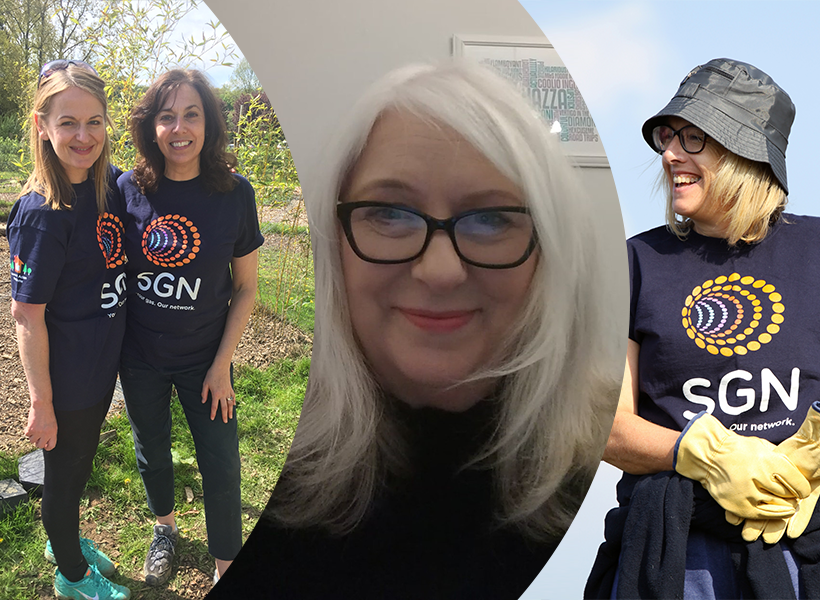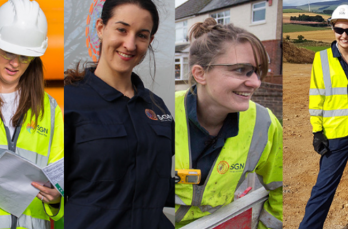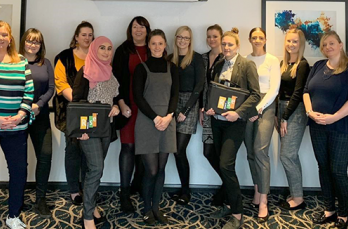
World Menopause Day is held annually to raise awareness of the menopause and the support options available for improving health and wellbeing. Menopausal women are the fastest growing demographic in the workforce and, with eight out of ten menopausal women in work, attention is turning to how the workplace can become more menopause friendly.
We’ve been sharing the experiences of our colleagues alongside helpful resources to improve awareness and understanding around the menopause.
Stakeholder and Community Manager Sharon told us about the symptoms she experienced when going through the menopause.
Sharon said: “Some of the more commonly spoken about symptoms include hot flushes, insomnia, depression and irritability. One of my favourites is forgetting the names of objects or people – I have on numerous occasions introduced lifelong friends to others using a completely different name from theirs! Or forgotten what a pencil is called – as someone who can remember what I wore to a party in 1979, this is so frustrating.”
Maria, PA to our Director of Operations, struggled in coming to terms with the changes to her body. She said: “For me, the onset was soul destroying (late 40s)! I lost “me”, I lost sight of my purpose and who I was. I lost confidence in my ability to cope with day to day normal actions and if it wasn’t for the advice of a very good friend I may have ignored the signs put it down to old age and carried on suffering – but I didn’t, I took the advice and sought medical help. I got the HRT patches and I made some lifestyle changes – the symptoms are controlled and bearable and, apart from the odd forgetting of a describing word, I feel ok and not so batty or tearful!”
Head of Employee Experience Kirsty admitted to being denial that menopause was waiting for her and has been exploring remedies and medications available to women in her situation.
Kirsty said: “I wanted to understand more about oestrogen, progesterone and testosterone, which the female body stops producing. I wanted to understand the risks and benefits of HRT and make the decision that was right for me. And I wanted to learn what to ask the GP for on my visit. GPs aren’t adequately trained in the menopause and many women struggle to get help. I’m now waiting for a referral to a menopause specialist but I’m much more informed. It’s not just women over 50 affected, peri-menopause can start in your 30s, with similar symptoms.”
Employee Experience Manager Emma-Jane spoke openly about the need for better understanding of what women go through. She said: “I accept that not everyone needs to do the research and needs the detail of whether I’m Perimenopausal or Menopausal, or if I’ve chosen HRT or alternative herbal remedies (which I now have), but I just need understanding, empathy (even from the sisters out there who don’t suffer) and acceptance, that I’ve not turned stupid nor am I making excuses – the way I’m acting isn’t always within my control.”
Technical Assistant Linda spoke about how it affected her physical and mental health, as well as relationships with family and friends. She agreed with the others in the importance of talking openly about menopause, saying: “It is very important that family and work colleagues understand what you are going through. Don’t suffer in silence. There is no shame in having that awkward conversation to educate them about your experiences. You Are Normal.”
To learn more about the menopause, here are a few websites, podcasts, blogs and resources recommended by our colleagues:
- Menopause madness (podcast) hosted by Lisa Snowdon and generally always featuring Naomi Potter - Get Lifted with Lisa Snowdon: Menopause Madness on Apple Podcasts
- NICE guideline NG23 - Overview | Menopause: diagnosis and management | Guidance | NICE
- ACAS 2019 menopause guidance - Talking with staff about the menopause: Menopause at work - Acas
- Menopause matters website and mag (latest edition is all about what men need to know) - Menopause Matters, menopausal symptoms, remedies, advice
- balance menopause app - balance – a menopause support app by Dr Louise Newson (balance-app.com)
- The Man Shed - Menopause Matters: The Man Shed




